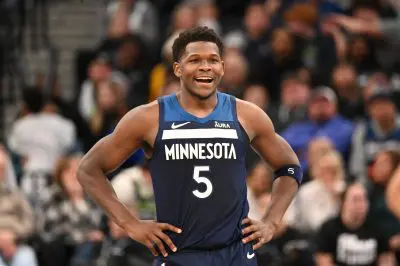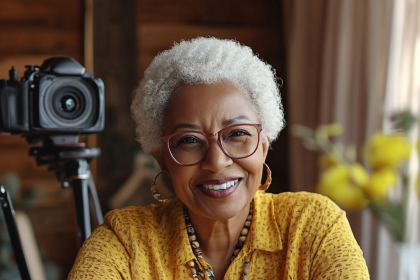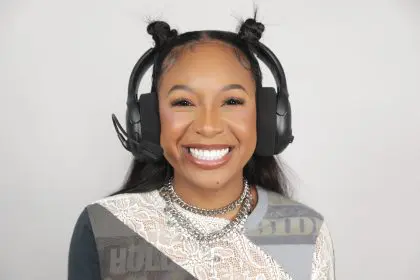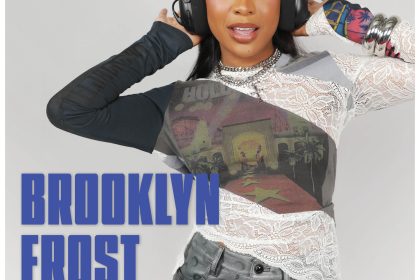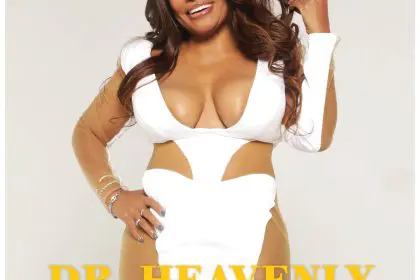
Words by DeWayne Rogers
Images by Hiltron Bailey for Steed Media Service
What is This?
So I just happened to get off work a little early one evening, and decided to indulge in a little “me-time.” Now while this usually includes a nap, or catching up on my previously Tivo’d television favorites; on this particular evening, I felt compelled to live a little on the edge. I was going to channel surf. (I know . I’m a rebel.) Anyway, at first this mindless and aimless pursuit of empty entertainment was pretty uneventful. But with one fateful flick of my remote, I instantly found myself engulfed in a channel and a world that I previously never knew existed.
(Thinking to myself: When did ABC create a family channel?)
Was I so stuck in my ways that I had completely shut myself off from an ever-expanding cable roster? Apparently I had. But there I sat face-to-face with a channel that I had never heard of, watching a show that I honestly didn’t think had a place on television.
(Wait . you mean this black family is still together? And the father is a very present figure within the household?)
Shocking isn’t? Perhaps for some, but for the faithful viewers of the critically acclaimed hour-long drama, “Lincoln Heights,” this type of positive imagery is the weekly norm. And it’s actually quite refreshing.
A Rhyme with Plenty of Reason
This type of knee-jerk initial response is precisely the intended response that Kathleen McGhee-Anderson, who executive produces the show, and the rest of the talented cast and crew are banking on. Set to kick off its highly anticipated second season on a new day and time, (Tuesdays at 8 p.m. beginning Sept. 4), “Lincoln Heights” is poised to become everything that “The Cosby Show” both was and was not. With an intact family unit with the father prominently serving as not just a provider but also a caregiver, the Suttons, the central family of the show, follow in the footsteps of the Huxtables – but only to a certain point. Halfway down that road to becoming a safe, overly sappy black family that the world can’t help but love, the Suttons decided to do something that you can’t help but respect – they decided to be real. Now that’s no dis to Cliff or Clair, but the gritty realness of a black family struggling to stay in love, raise a family, and still be a vital cog in the efforts to revive a community, is a side to Dr. Cosby’s brainchild that we never saw. This point alone point provides McGhee- Anderson with an unwavering confidence in the show’s ability to tap into the raw emotion of humankind.
“One of the beautiful things about this show is that culturally, everyone can relate to it,” she revealed in a recent interview. “You don’t have to necessarily be black to connect to the journey of the Suttons. The realness of their love for each other, and also the love for their community is something that is relatable to everyone, regardless of race.”
While McGhee-Anderson’s assertion certainly holds true when factoring in ABC Family’s decision to bring the show back despite less than stellar ratings in season one, a larger looming question may be why ABC Family has been the only cable network willing to take a chance and push a serious treatment of a traditional black family. “To have ‘Lincoln Heights’ return for a second season feels like such a victory,” McGhee-Anderson continued. “ABC Family has stood behind us, despite the faulty prevailing wisdom that would have you believe that a family drama with an African American core could not succeed on television. We’ve dispelled many of those notions, and will continue to do just that.”
Definition of a Man . a Black Man
Watch the news on any given evening, and more often than not, the images of black men that are sure to stream through the tube and into the consciousness of the country are less than favorable. Flip to any reality show or music video, and it’s usually more of the same. We’re thugs. We’re ignorant. We lack a sense of responsibility. We’re nothing but violent, gun-wielding, potent babies’ daddies. As these images continue to manifest themselves, infecting an entire generation of young people desperately searching for a sense of self, one actor is determined to lend himself to becoming a part of the solution, instead of making his way over to an increasingly long line of those who decry the problem, but do nothing about it.
And thus begins the journey of seasoned actor Russell Hornsby. As the lead actor of “Lincoln Heights,” Hornsby expertly portrays Eddie Sutton, a devoted police officer, husband and father who decides to move his family back to his old impoverished neighborhood to give back. From Hornsby’s perspective, the importance of his character for the African American community can’t be understated.
“I believe that the main reason the show revolves around my character is because he is the most important character on the show,” Hornsby explains. “We haven’t seen a black father at home in this capacity. And here is a man who gets up, provides for his family, is present every day, loves his wife and loves his kids. You just don’t see that kind of imagery. And let’s face it, for whatever reasons, black men haven’t been there historically, and black men haven’t been home. In fact, I’m a product of a single parent household myself. But because I’ve had positive male role models in my life, I’ve been able to rise above that.”
From Hornsby’s perspective, his personal ascension above the traditional ill effects of a fatherless household will no longer have to be the norm, as a new generation of black men are beginning to step up to the plate and handle their business. “I honestly think that we are beginning to see a paradigm shift, as more black men are beginning to step up and take responsibility for their lives and for their families,” he surmises. “Whether they’re in the home or not, they are starting to take on more and more responsibility. I think that this show and my character is a reflection of where we are headed as a people.”
Buzzworthy
While Eddie Sutton’s character may indeed mirror a new path being charted by black men everywhere, such warm and fuzzy sentiments can never be enough to keep a show on air. Outside of the stellar reviews received from critics and a solid viewer base, perhaps one of the major saving graces for “Lincoln Heights” during its initial entrance into the marketplace was the huge groundswell of support it received in Internet chat rooms and forums. Women, particularly those between the ages of 12-34, took rather quickly to the energy and mission of the show. As for Nikki Micheaux and Erica Hubbard, who portray Jenn and Cassie Sutton respectively, their personal missions are clear – continue to be strong women in and outside of their roles. After all, Eddie’s character isn’t the only one that’s an important image for our community to see.
“The response that I get from people that connect to my character has been overwhelming,” Micheaux explains. “Our show and my character appeal to a different sensibility than what is currently being put out there. People seem to be more concerned about who’s sleeping with whom . you know, more of the dirty, sexy, scandalous type of content. But we are presenting a different option, and showing characters that are so believable and relatable. If I can just say it plain, ‘Lincoln Heights’ is a damn good show.”
Hubbard, of course, agrees with Micheaux’s assertion that “Lincoln Heights” is indeed a top-notch show, and hopes that its appeal and importance will allow it to find its way into more homes this season. “Our show is so important for so many different reasons,” she insists. “We all have our fingers crossed that this year will be even bigger and better than the first. More people need to see positive stories like this one. All we can do is hope for the best and keep making great TV. ”



